NYERGES’ “URBAN SURVIVAL GUIDE” ADVOCATES LIVING SIMPLY TO BE RESILIENT AGAINST ADVERSITY
Did you ever feel as if you were on life’s cruel treadmill? You work long and hard to pay for the possessions you accumulate only to find you have little time to use those things because you’re too busy working to pay for them.
There is an alternative. Christopher Nyerges details a different approach in his book, “Urban Survival Guide, How City Dwellers Can Live Well, and Frugally, Even in Dire Times.”
While this book is likely to be of interest to those seeking to be secure in the possible event of a natural disaster or economic collapse, it’s actually a guide for living a simple lifestyle unchained from the constraints associated with the pursuit of material wealth.
Nyerges lays out a plan that entails growing your own food, repurposing everything you can instead of throwing things away, improvising things you need, and doing without those things you really don’t need.
BREAKING IT DOWN
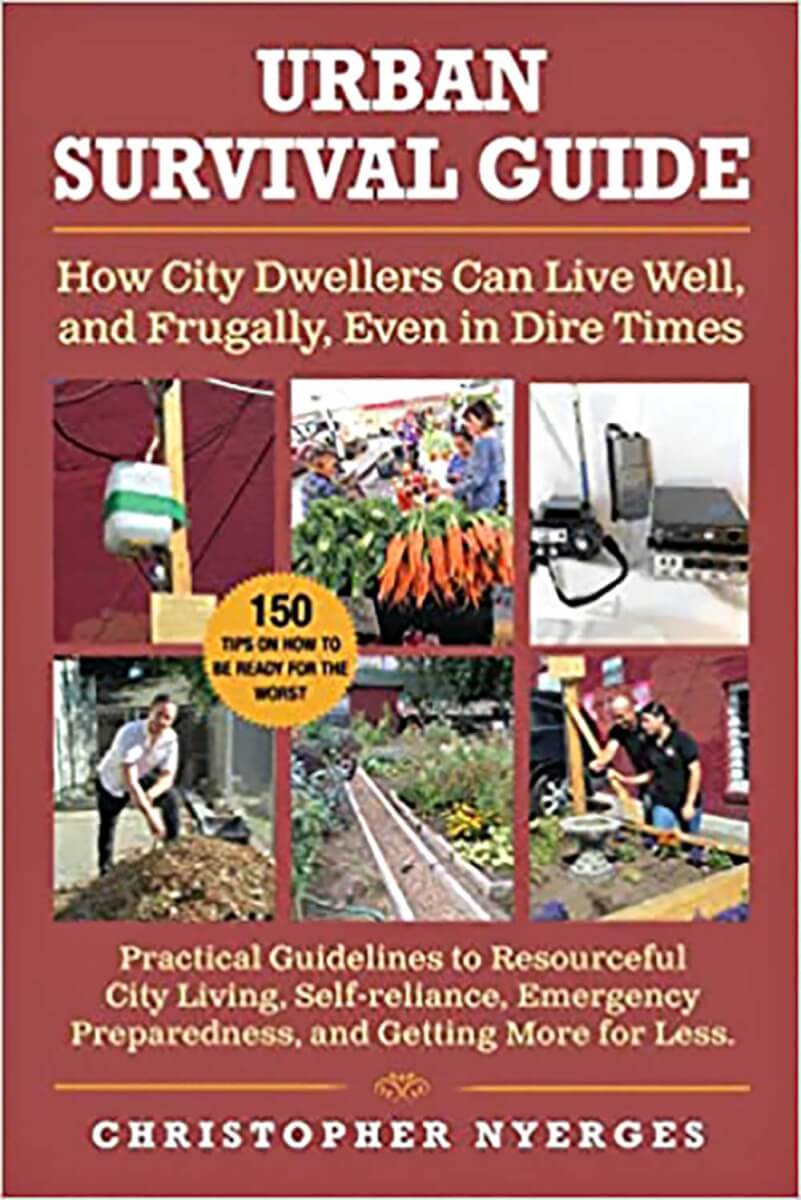
Too often, we sum up urban survival tactics with one idea: Flee the city. Yes, bugging out might be necessary when faced with rising flood waters or an approaching wildfire. But escaping to unfamiliar wild places with the intent of “living off the land” isn’t always the best plan when you’d have to leave behind most of the resources you have at home. And realistically, surviving in the wilds in most cases becomes a matter of slow starvation.
Nyerges makes a strong case for living an economically lean and environmentally friendly existence by making the best uses of your available space and resources. And should a crisis arise, you’re not as tied in to a dependence on supply chains, power grids, and help from government agencies that might be slow in responding. Nyerges covers all the basic necessities, with chapters on shelter, water, food, general hygiene, health, utilities, communications, and economic issues.
SHELTER
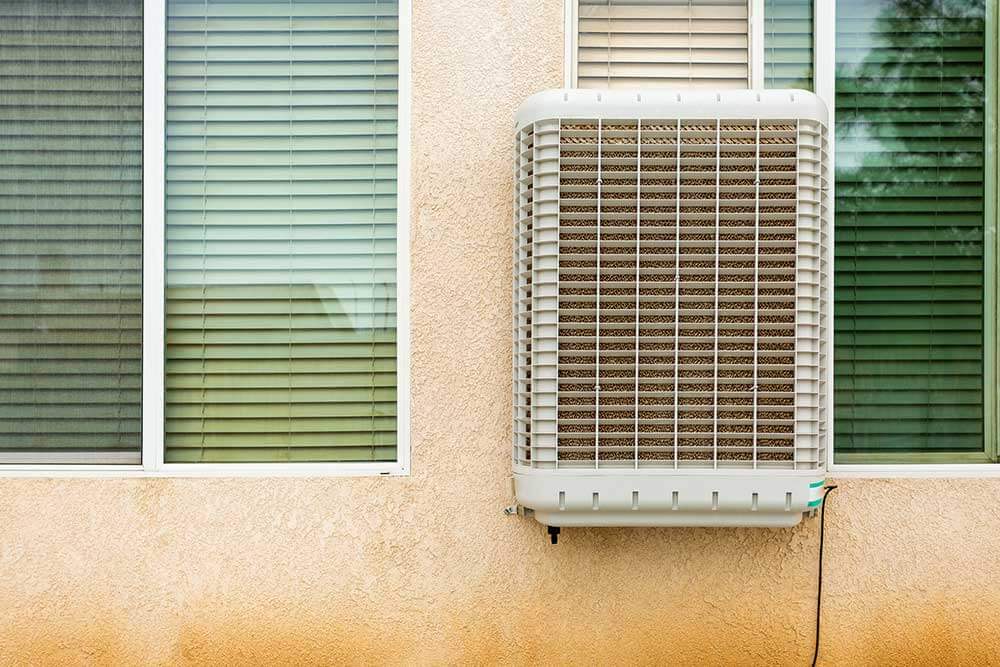
According to Nyerges, fortifying your living quarters should begin with good insulation that can keep your home warmer in the winter and cooler in the summer.
Installing a wood stove and taking advantage of free fuel in the way of downed trees and branches when you can find it can lower your heating costs. In hot weather, maintaining good air flow throughout the home, including the installation of a solar-powered attic fan, can be a benefit. In areas of low humidity, creating a “swamp cooler” by hanging wet fabric in the path of your home’s interior air currents is another good suggestion.
WATER
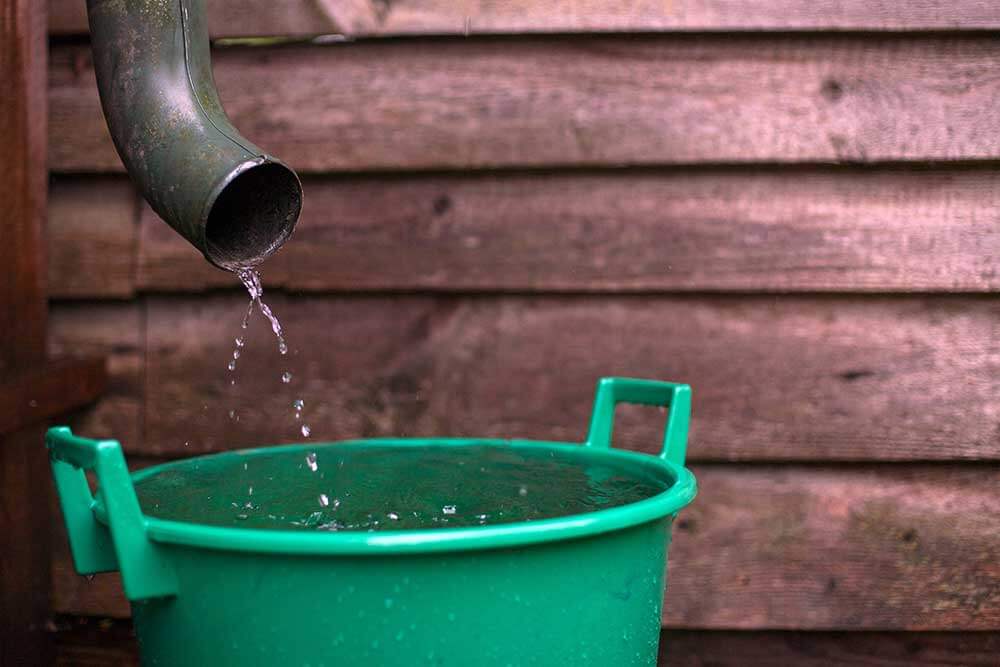
Water is critical to life, but you wouldn’t think so the way we waste so much of it in this country. Nyerges lists a number of ways we can be more frugal with our H2O, from repurposing old containers to store water, to washing some clothes in the bathtub as we bathe, to using that water afterwards to flush toilets or water gardens.
He provides some detail on the benefits of collecting rainwater after 34 minutes of letting the rain wash contaminants out of the urban air. He points to finding needed water from streams indicated on topo maps to the runoff from air conditioning units. He provides simple ways to make water potable, too, especially in the event of an emergency.
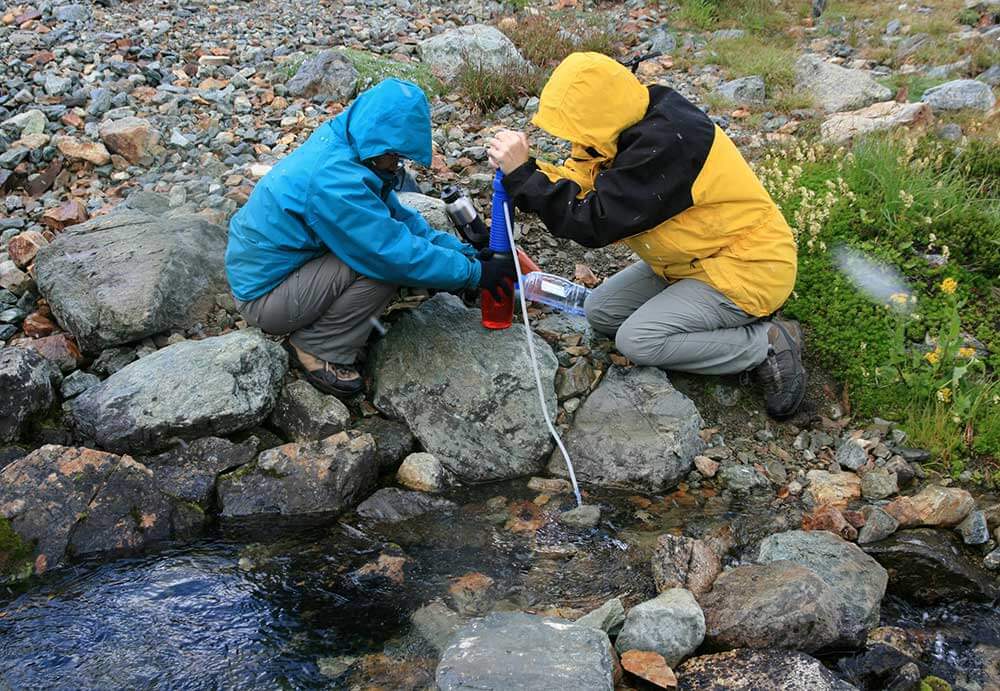
FOOD
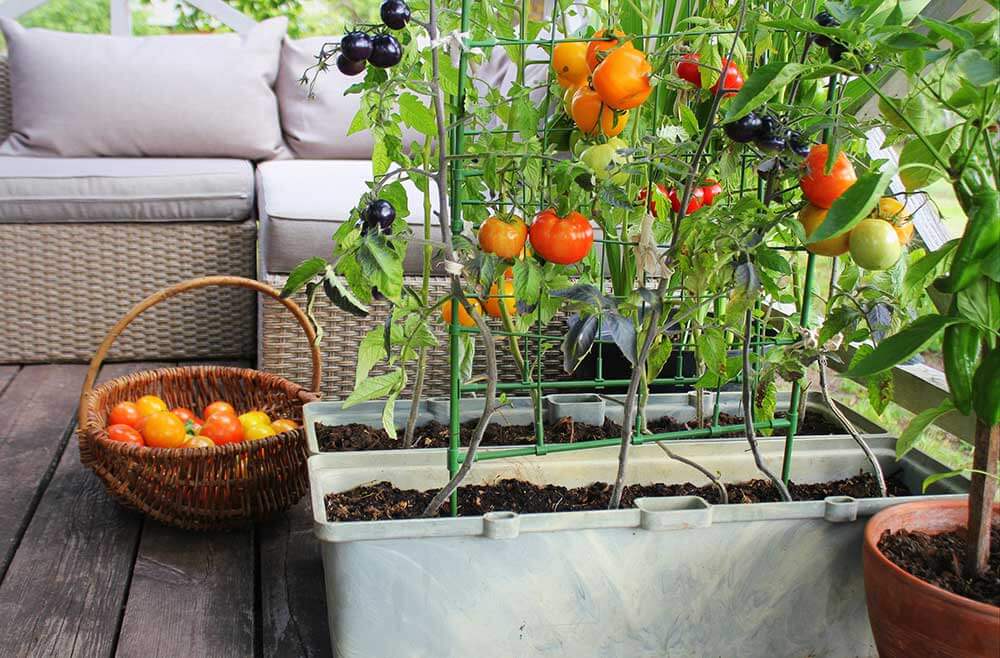
Urban areas don’t have to be barren wildernesses when it comes to food availability. Nyerges advocates growing as much of your own food as possible, giving up a useless, grassy lawn in favor of raising plants that do well in your area, making use of proliferating edible plants that are commonly regarded as weeds. In the lifestyle Nyerges champions, little if anything goes to waste, including kitchen scraps, and domestic animal droppings, which can all be used to make compost to enrich the soil.
Food storage is another topic Nyerges tackles. Buying canned and dried foods in bulk when it’s on sale is one way to stockpile provisions economically for when you might need them most. Drying, canning, or pickling your own food is another way. An added benefit is that you’re cutting down your need for a refrigerator.
He provides options for cooking food on a simple hibachi or a grate over wood coals and gives details on alternative fuels, including how to make logs out of compressed newsprint.
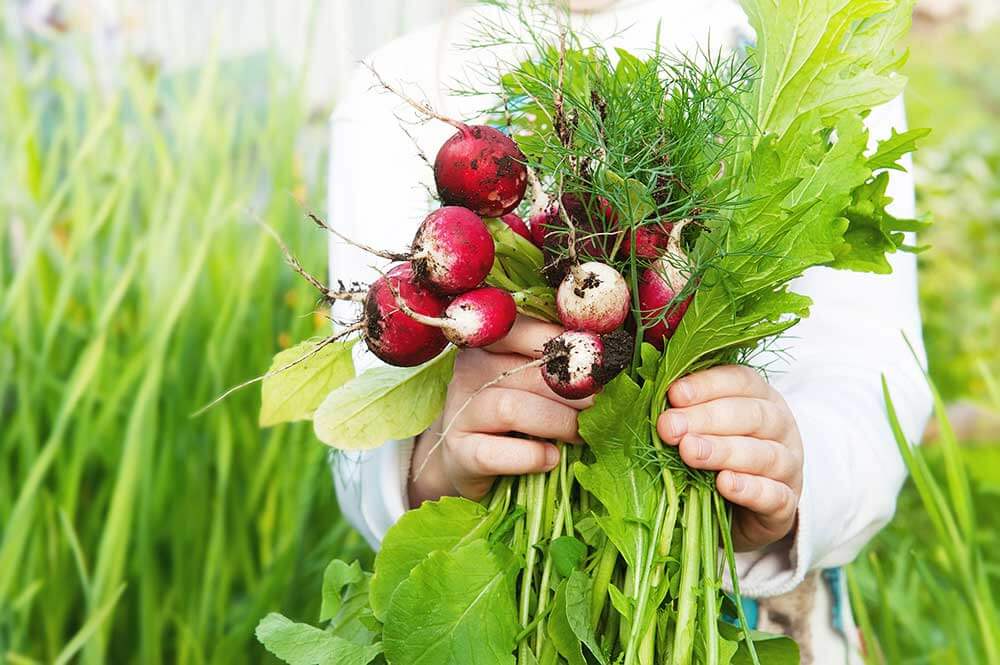
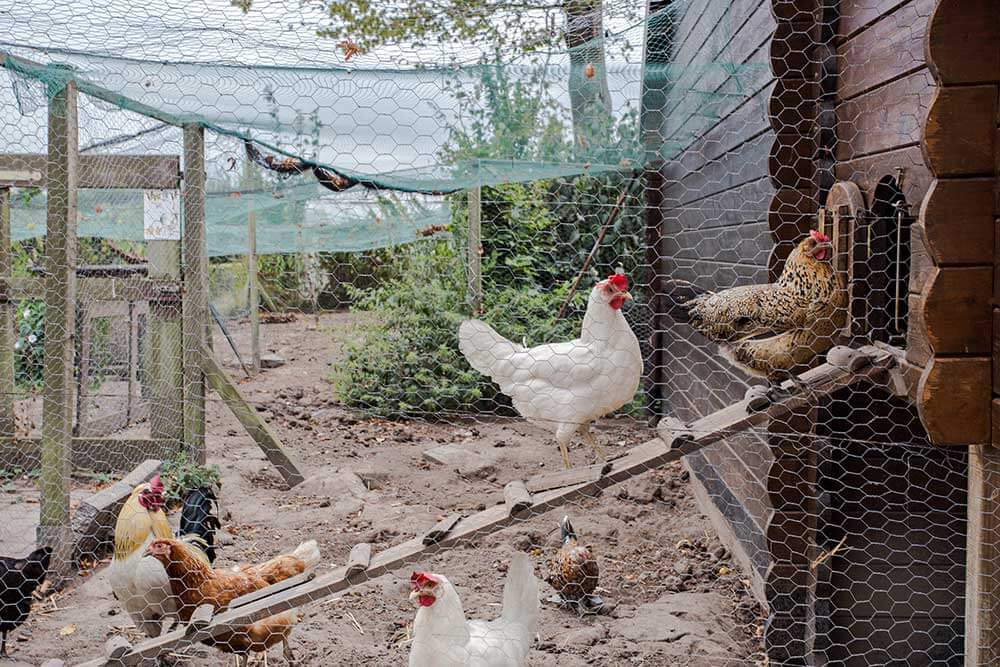
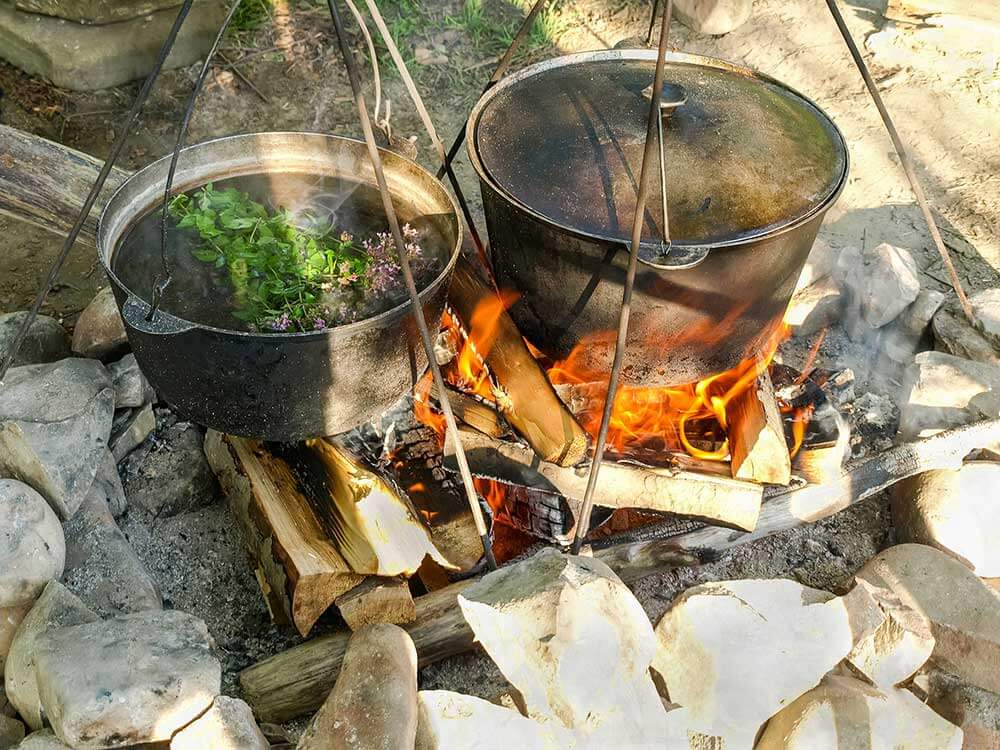
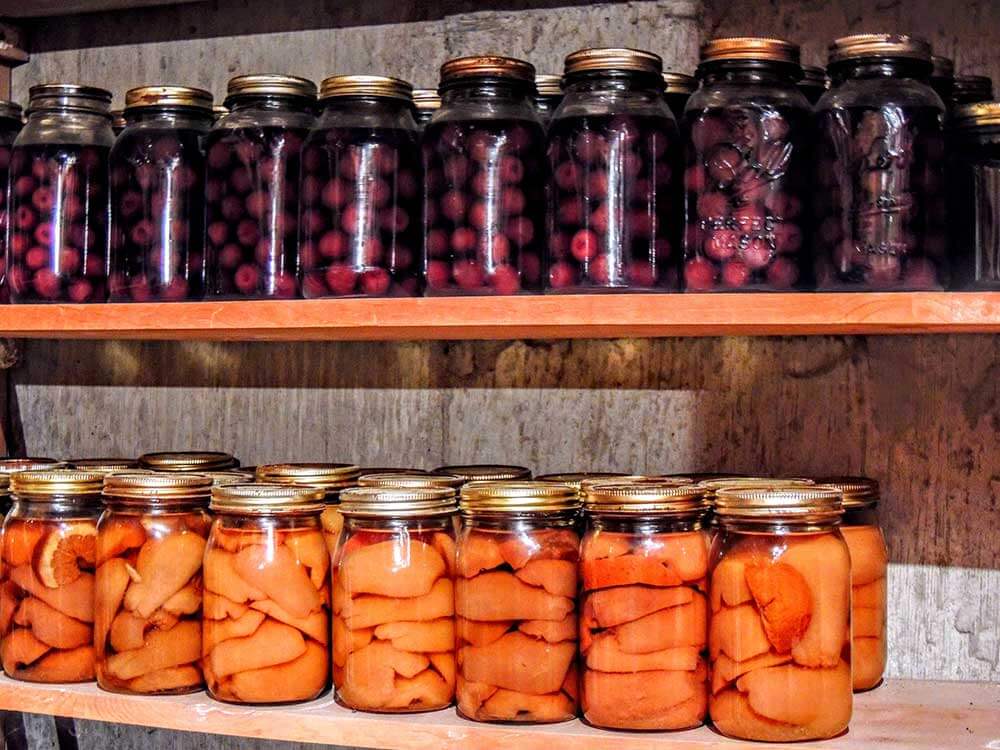
LET’S KEEP IT CLEAN

This book provides the basics on how to make your own soap, and how yucca and ceanothus plants can be used as soap substitutes. He suggests using a solar shower when away from home or during times when utilities might be down. A solar shower – several are available commercially – consists of a water bag that absorbs heat from the sun. The bag is then suspended and uses gravity to provide the water flow through a hose.
When you gotta go, you gotta go. So, Nyerges addresses the issue of human waste and several ways to deal with it.
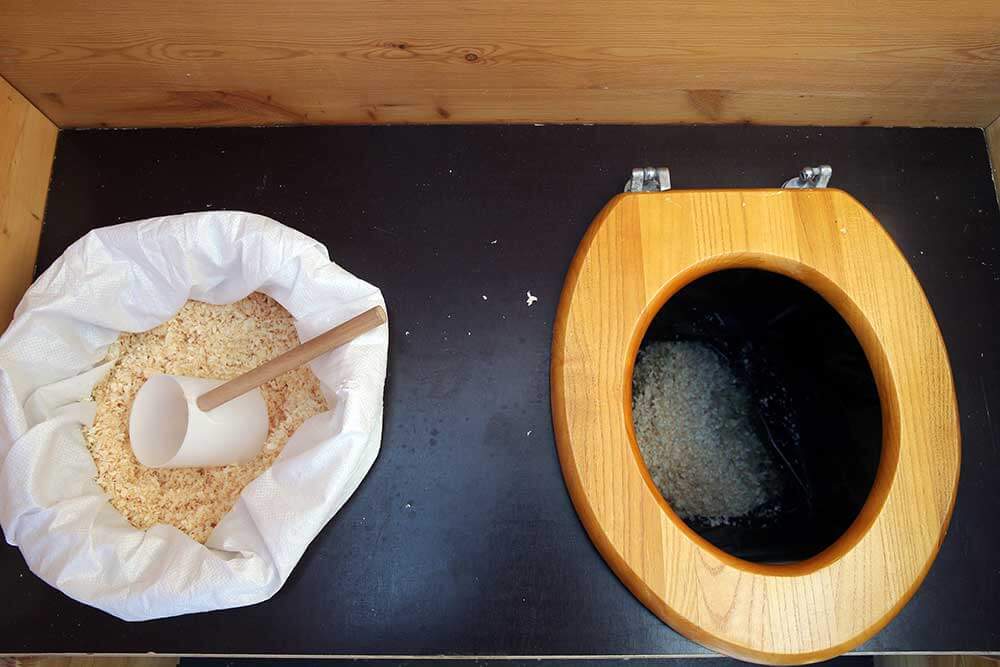
LESS DEPENDENCE
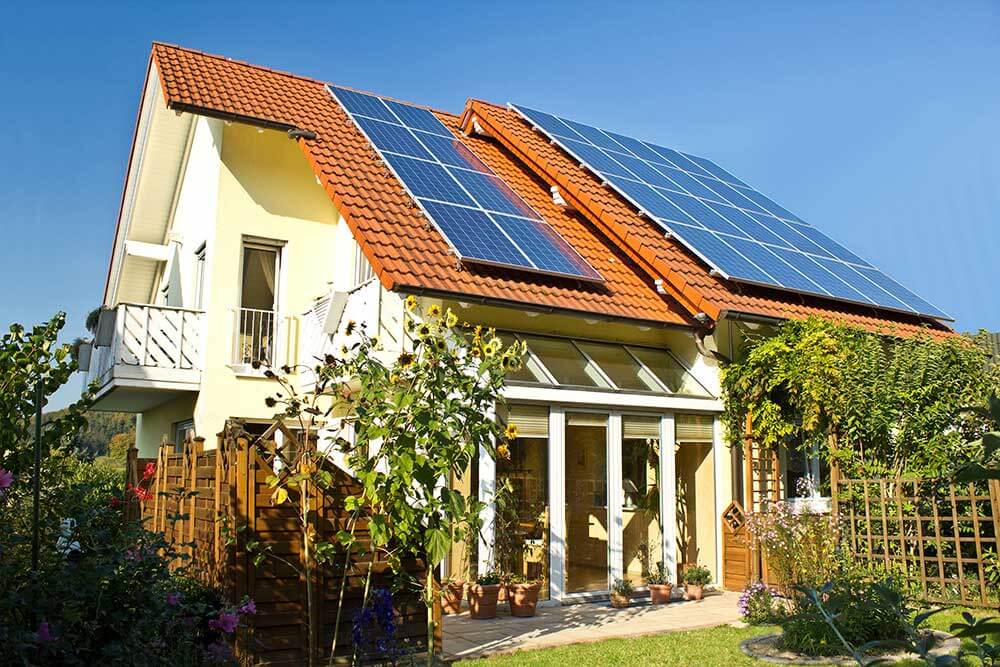
In a Nyerges lifestyle, the less dependence on utilities the better, both for your budget and for your readiness should a critical event shut everything down.
This idea hit close to home for me. Raised in a single-parent household throughout my teenage years, we never had a dishwasher or a clothes dryer, yet somehow we survived.
NOT ALL OR NOTHING
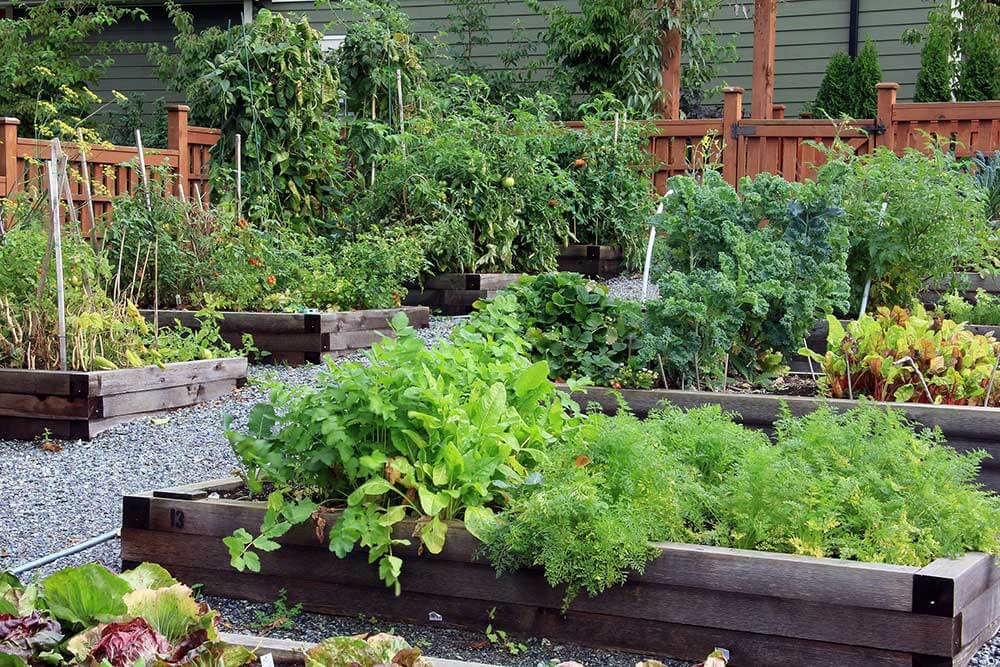
Nyerges doesn’t invent new methods as much as he suggests going back to tried and true ways of doing things that have been mostly lost to our society over the years as we’ve become conditioned to expect every convenience and to view them as necessities.
After reading this book, you might ask yourself if you could really make drastic changes in your lifestyle to live as Nyerges recommends. But you don’t have to take the deep dive into these unfamiliar waters when you can wade in a little at a time. You can make small changes, trying some of the techniques Nyerges describes to see if they will work for you.
“URBAN AREAS DON’T HAVE TO BE BARREN WILDERNESSES WHEN IT COMES TO FOOD AVAILABILITY.”
I quickly skimmed over an early chapter that contained suggestions for city planners on how to design public spaces. Once past that, the book got down to the nuts and bolts of living the simple life with much useful information. One thing is certain: By following some of the lifestyle suggestions in this book, you will be better prepared and much more experienced at being able to weather any storm, real or metaphorical, that presents itself in times of adversity.
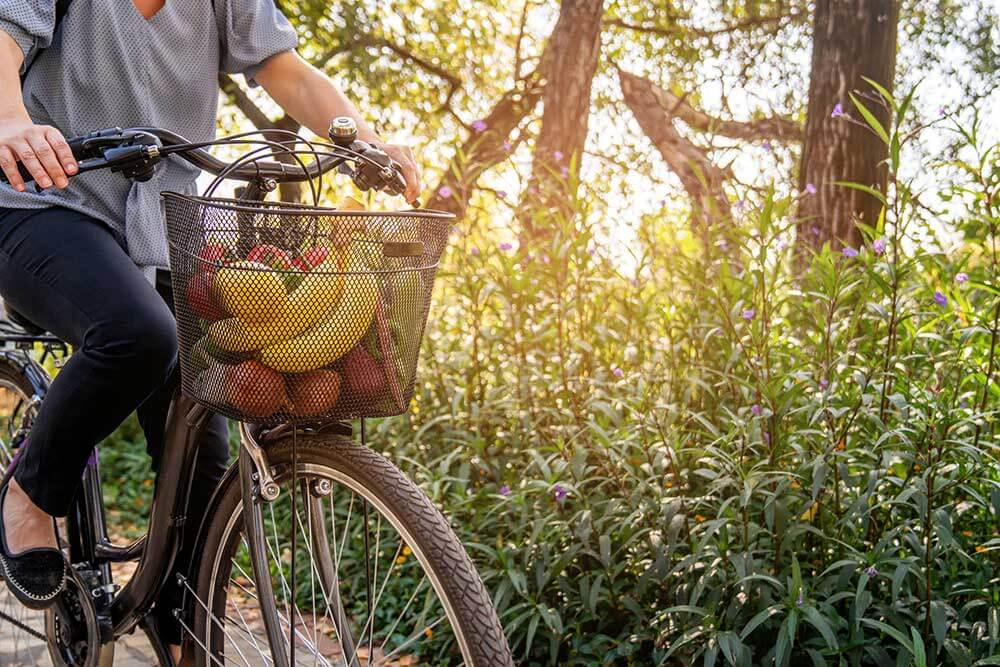
WHO IS CHRISTOPHER NYERGES?
Christopher Nyerges is an urban Henry David Thoreau. I remember reading Thoreau’s “On Walden Pond” many years ago and I immediately thought back to the tenets expressed in that book while reading Nyerges’ “Urban Survival Guide.” Nyerges acknowledges he was influenced greatly by Thoreau.
However, Nyerges goes far beyond being merely a philosopher espousing a simple way of living. He is an expert in the practical application of living such a lifestyle. He is trained in ethnobotany and the principles of permaculture and has been an instructor for many years. He’s an expert in the identification and practical uses of plants both wild and cultivated. He teaches many courses through his School of Self-Reliance (www.SchoolOfSelf-Reliance.com) and is active in helping organizations that work toward urban sustainability. He is the author of 19 books and numerous magazine articles.
SOURCE
“Urban Survival Guide, How City Dwellers Can Live Well, and Frugally, Even in Dire Times” by Christopher Nyerges
Published by
Skyhorse Publishing, Inc.
New York, NY
www.SkyhorsePublishing.com
Softcover, 279 pages
$19.99
A version of this article first appeared in the September 2022 issue of American Outdoor Guide Boundless.

